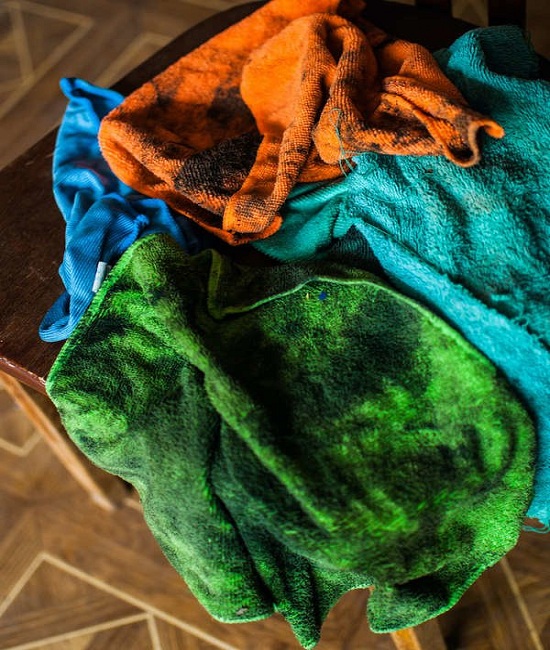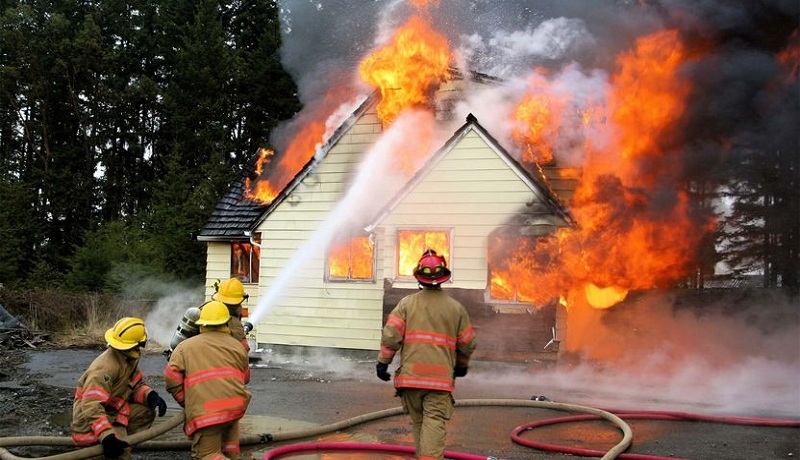Fires in the home are more common than you might think, with potential ignition sources including light bulbs, laptops, and lint traps strategically placed all over the house. Do any of these dangerous habits seem familiar? Continue reading to learn more.
Misusing Electric Blankets
While an electric blanket can be a welcome relief from the chill of winter, it can also be dangerous if not used properly. Do not let dogs cuddle up on top, and don’t use too many blankets on top of the electric one, since this might produce an unsafe increase in temperature that could result in a fire. Always use the lowest setting, avoid bending the coils, and switch off your electric blanket when you get up in the morning.
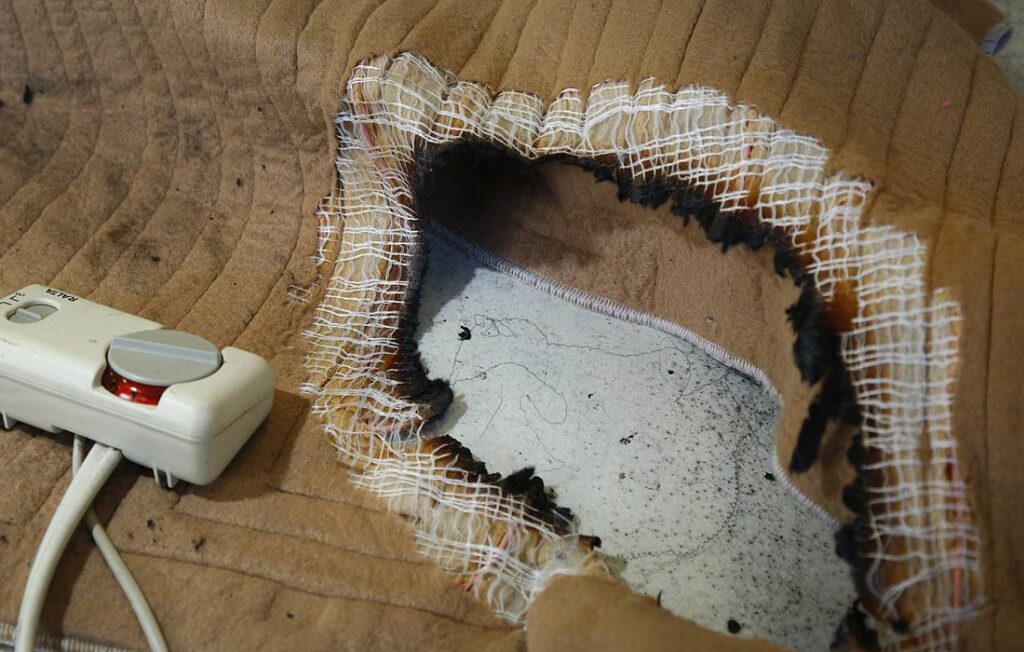
Neglecting Appliance Recalls
Over the past decade, malfunctioning appliances have been responsible for an estimated 150,000 annual residential fires. Register your appliance with the manufacturer or check www.recalls.gov to see whether it is on the list and take preventative measures against potential disasters in your home.
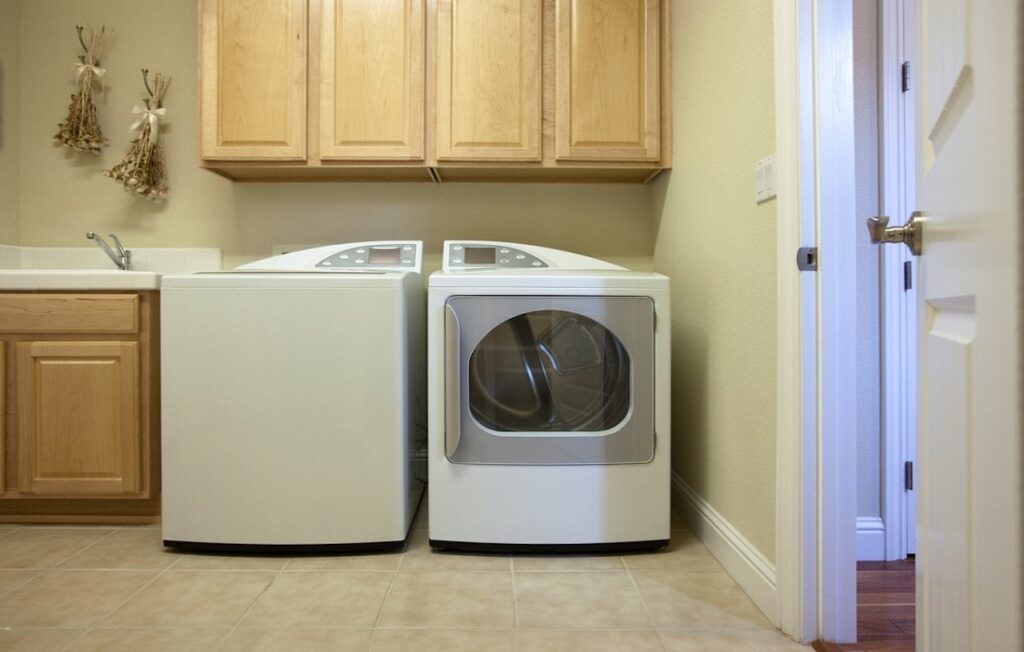
Lingering Dryer Lint
It’s common knowledge that clearing out the lint screen before running the dryer improves its performance, but few people realize that lint is also highly flammable. A combination of high temperatures and accumulated lint is a formula for disaster. In order to prevent a fire, it is important to routinely clean the dryer’s exhaust duct and vent, as well as the dryer’s inside.
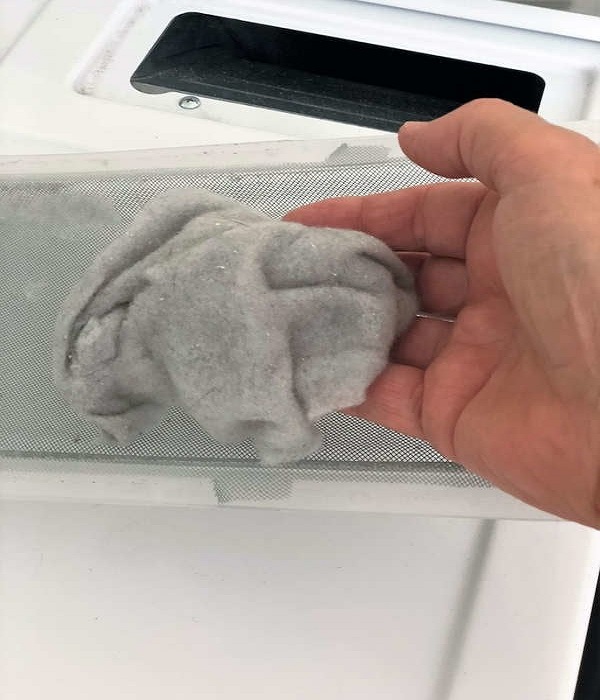
Allowing Your Laptop Overheat
Everyone who has ever owned a laptop computer knows how quickly they can heat up. Leaving your laptop on a soft, flammable surface like your bed, couch, or rug can cause it to overheat and even catch fire since the ventilation via the vents is restricted. Keep your laptop off of the floor and away from any sources of heat.
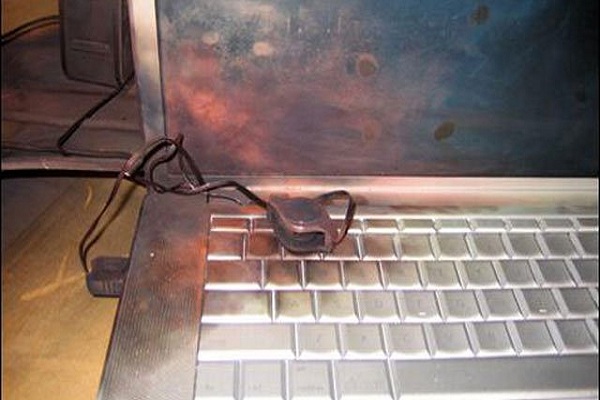
Choosing the Wrong Wattage
The concept that “this 60-watt bulb is probably OK to put in a 40-watt socket” has crossed the minds of many people, and you are not alone if it has crossed yours. But you’re risking the safety of your house by doing this. A common cause of electrical fires is the use of a bulb with a wattage that is too high for the lamp or light fixture. Never exceed the power rating of the light fixture without first checking it.
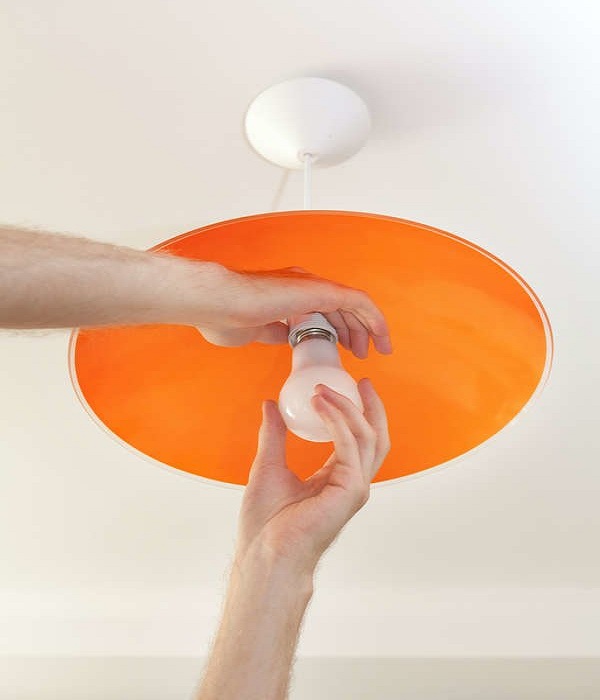
Using an Excessive Number of Extra Cords
Using an extension cord to compensate for a shortage of available wall outlets is only a stopgap measure. Reason being: Overloading an outlet for an extended period of time can cause a short circuit, which in turn can start a fire if the cords are left connected. Hire an electrician to add more outlets if you need them, and you won’t have to worry about this happening again.
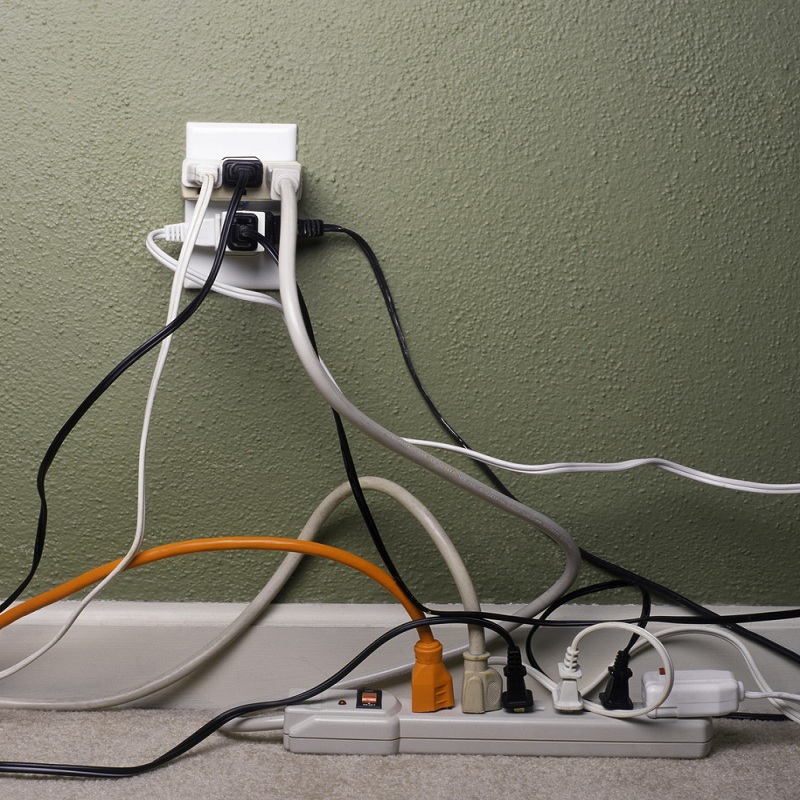
Doing DIYs You’re Not Qualified to Do
A total of almost $200 billion will be spent by Americans on home improvements this year, with nearly $20 billion going toward DIY initiatives. Fires in the home are typically caused by faulty electrical wiring, gas leaks, or poorly installed heating, ventilation, and air conditioning (HVAC) systems, all of which should only be worked on by trained professionals. Rather than putting your family at risk by doing these tasks alone, it is recommended that you engage a professional.
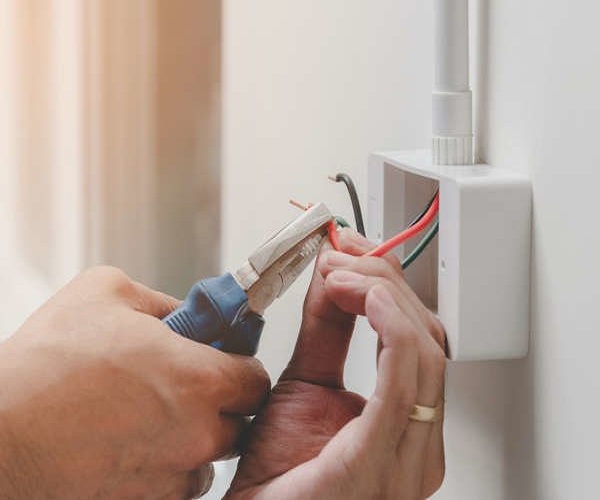
Disregarding Dust
Dust can be a fire hazard if it accumulates in and around things like floor heaters, electronics, and electrical outlets. Regular vacuuming, especially in the areas behind your devices, will greatly reduce the chances of dust particles igniting from prolonged contact with heat.
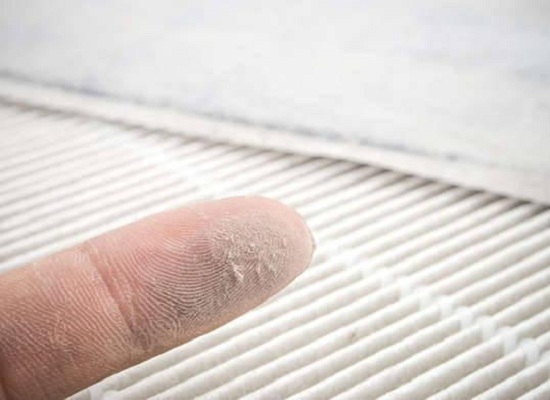
Storing Batteries Improperly
Keeping 9-volt batteries in the kitchen garbage drawer could be dangerous. Loose batteries have the potential to provide a fire hazard if they come into contact with other metal objects, such as screws or paper clips, and the two terminals short out. To avoid this, tape some electrical tape over the battery terminals or keep the batteries in their original containers.
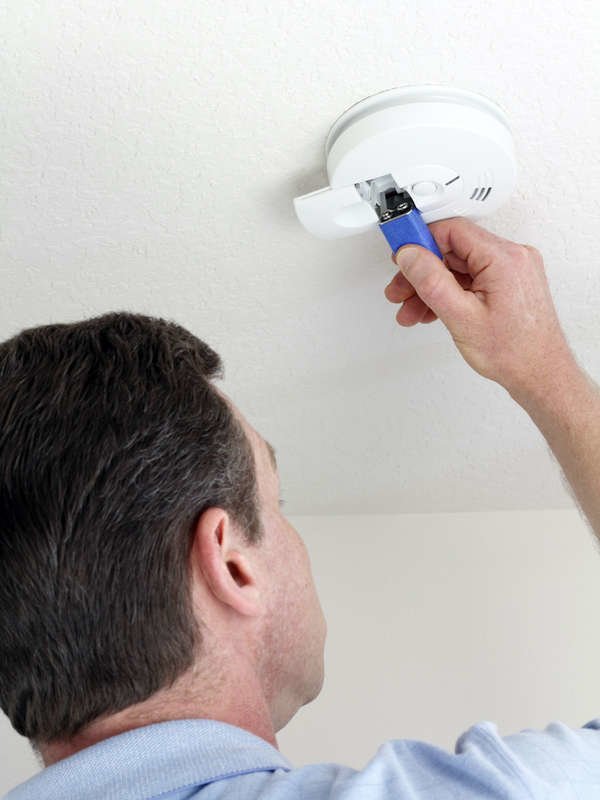
Ignoring Uninvited Guests
Rodents such as mice frequently use electrical cables to shorten their teeth. They can gradually strip away the covering, exposing the wiring underneath. Short circuits can emit sparks, which can ignite the surrounding surfaces if the wire is not sheathed. This is because the electric current traveling through the wire generates heat. Get in touch with an exterminator ASAP if you think you have a rodent problem.
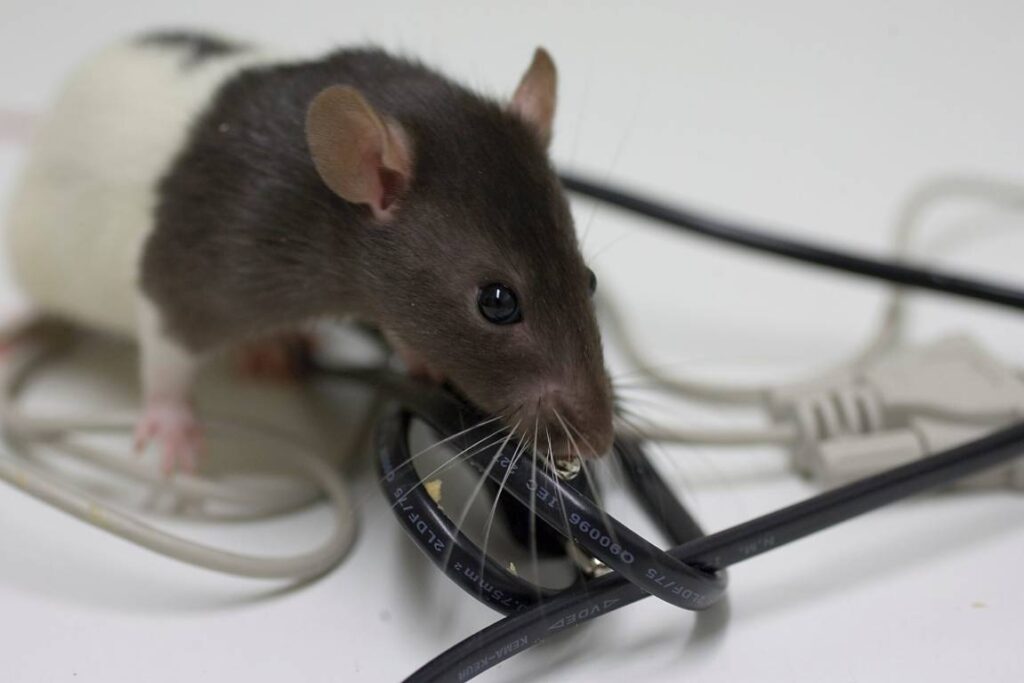
Forgetting the Chimney Sweep
Chimney fires are typically triggered by a number of different factors, including dead birds, raccoon nests, fractured mortar, and accumulated creosote. The National Fire Protection Association suggests having your chimney swept at least once a year. Additionally, never use kerosene to ignite a fire in your fireplace; instead, use a certified fire starter. The results may be catastrophic.
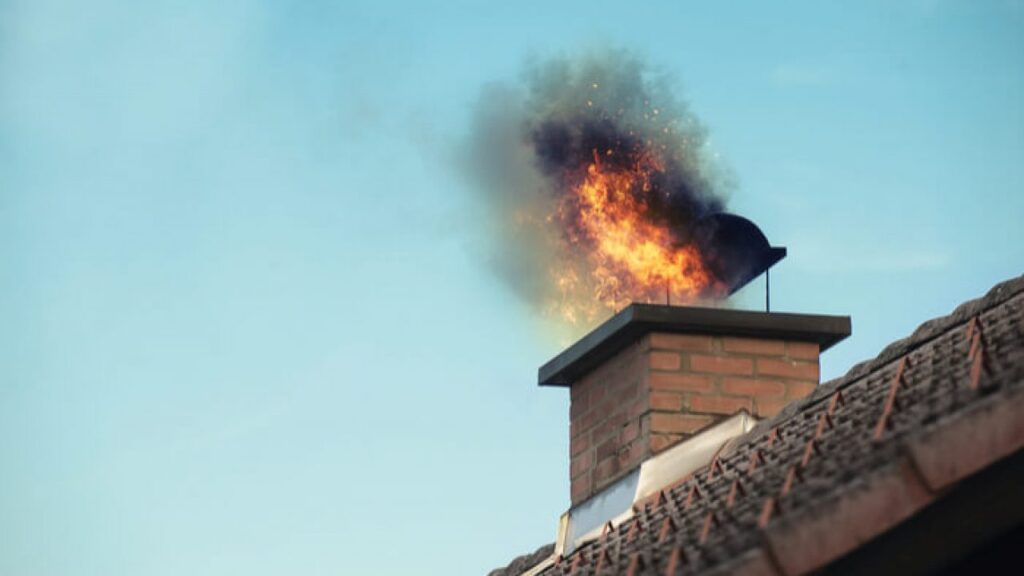
Overlooking the Range Hood
Though stoves and ovens are more likely to start a fire in the kitchen, range hoods can be just as dangerous. Grease that has accumulated on the filter of the vent hood can eventually drip onto the stovetop, where it could start a fire. The fire might spread quickly from there to your cupboards and then to the rest of your kitchen. Stay away from that! To prevent fires and other hazards in the kitchen, the range hood should be cleaned and serviced on a regular basis.
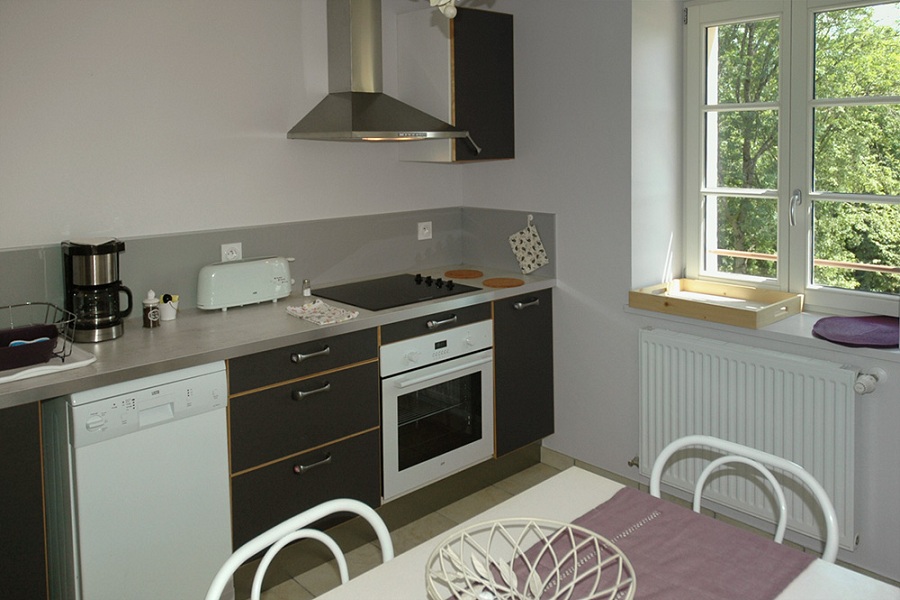
Poor Furniture Placement
Your wood stove is a potential source of disaster if you place flammable items too close to it. When a flammable object (like a sofa) is subjected to a constant heat source (like a wood stove) and allowed to dry out, a chemical process known as pyrolysis takes place. Without direct flame, heat and time are all that’s needed for this leading but often overlooked cause of structural fires to start.
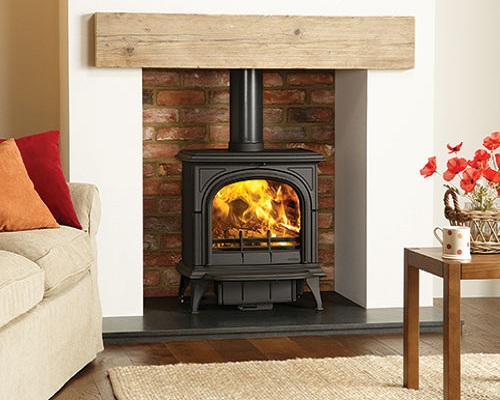
Inattention to Burning Candles
Candles are a great way to set the mood and fragrance in any room, but they may quickly turn into a devastating fire if left unattended. While you’re out, Dogs could accidentally knock over the candle, or a draft could cause the flame to catch on fire. Keep burning candles within sight and away from children, pets, and flammable items like curtains. Put out all candles with a snuffer before you leave the room.
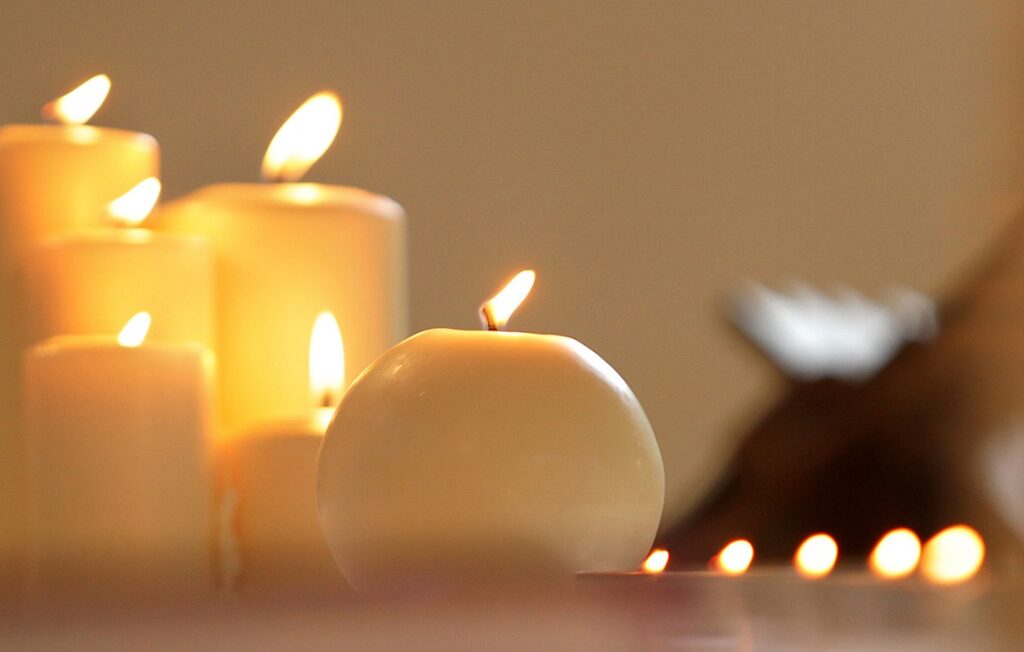
Using Tobacco Products Within a Building
It is estimated that roughly 17,200 house fires in 2014 were caused by cigarettes, pipes, and other smoking products. If a cigarette is not properly extinguished, the embers can catch on fire the neighboring newspapers or other flammable materials. Having a cigarette in bed is dangerous because if the smoker falls asleep while puffing, the sheets and blankets near them can catch fire. Only smoke in designated outside smoking areas and always dampen cigarette ashes and butts with water before discarding them.
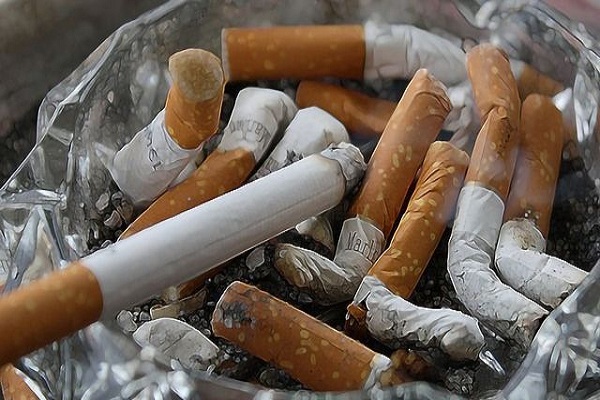
Stepping Away from the Stove
Even if you think you have plenty of time to get the laundry out of the house before the onions on the stove brown, don’t leave the kitchen without turning off the stove first. Keep your feet in the kitchen and your eyes on the stove whether you’re sautéing veggies or searing meat; a little flame can erupt into a firestorm in under 30 seconds. When you have to leave the kitchen for a moment, switch off the stove; reheating won’t take as long as you might imagine.
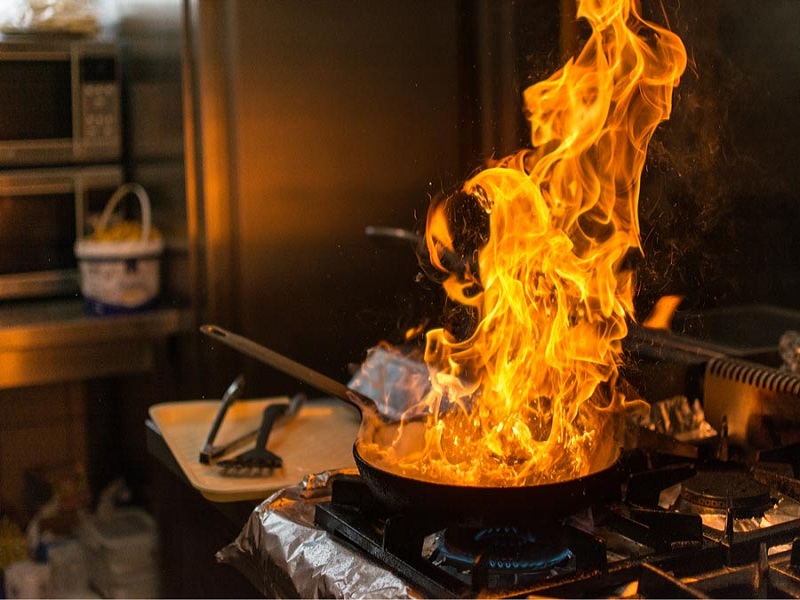
Not Paying Attention to Loose Plugs
When nothing you plug into an electrical outlet seems to stay put, it’s probably because the metal contact points in the receptacle have worn down and no longer provide a firm connection. By continuing to use the faulty outlet, you risk a house fire brought on by arcing (current jumping across an air gap) if a device fails to properly connect. If you want to feel safe plugging in your electronics, have an electrician swap out the potentially dangerous outlet immediately.
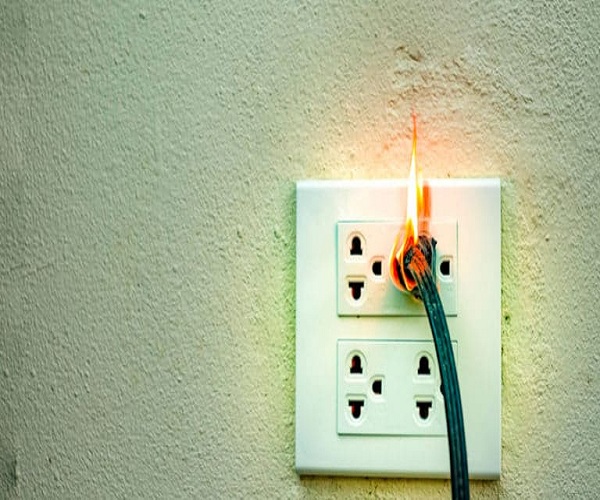
Not Giving Space Heaters Space
Even though they come in handy when the duvet isn’t quite cutting it, space heaters are responsible for 43% of home heating fires and 86% of home heating deaths. Placement too close to flammable materials might cause them to become too hot to touch and even ignite. Heaters should be kept at least three feet away from anything flammable, including but not limited to clothing, bedding, and furniture.
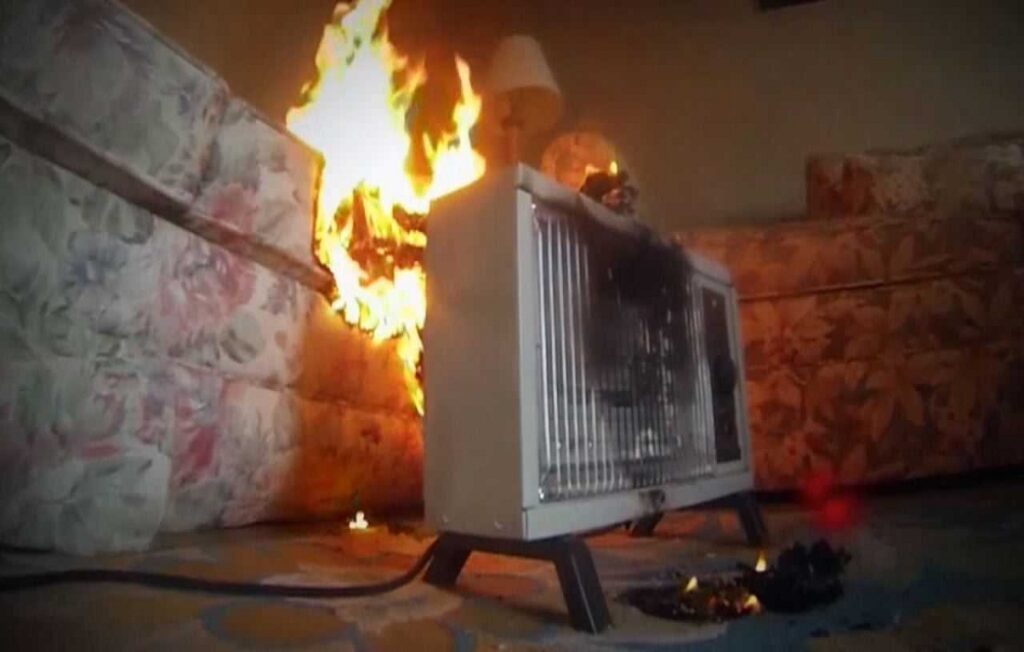
Leaving Traces in the Toaster
Whenever you toast some bread or a bagel, crumbs fall to the floor of the toaster. These crumbs can heat up and catch fire during the next toasting cycle, destroying your toaster and possibly the kitchen as well. To avoid crumbs from building up in your toaster’s crumb tray, you should routinely unplug and let it cool, remove the tray, empty its contents, and wash it in warm, soapy water. Without a crumb tray, most crumbs can be removed by unplugging the appliance, tipping it over, and giving it a gentle shake.
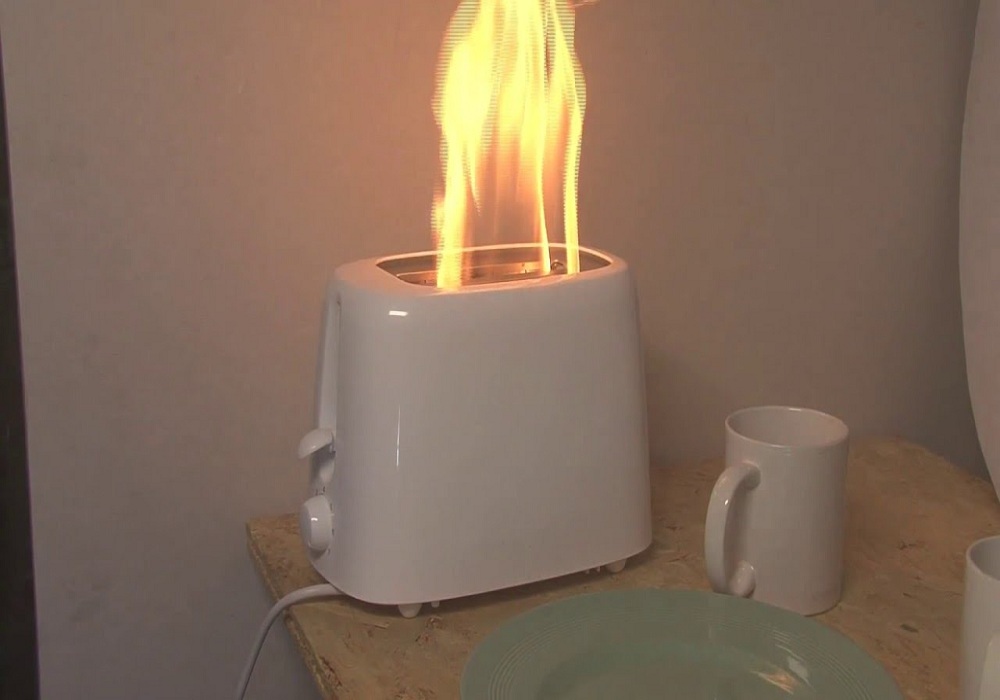
Piling Up Dirty Rags
Applying a wood stain is the perfect way to complete a DIY furniture project. However, the oil-soaked rags you flung to the side could eventually cause a catastrophe: If left unchecked, the rags could oxidize and catch fire, posing a serious threat to the safety of the home. Oily rags should be properly disposed of by either being placed in a metal container that has been filled with water and has a tight-fitting lid, or by being laid flat outside to dry.
